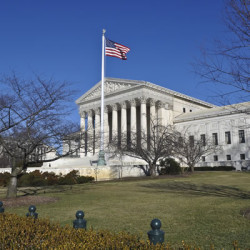Pennsylvania Supreme Court Upholds the Tort Claims Act’s $500k Cap on Damages

For many years, local governments have relied upon the statutory cap on damages under the Political Subdivision Tort Claims Act (“Tort Claims Act”) in order to provide essential government services and protect their taxpayers. Under the Tort Claims Act, damages arising from the same cause of action or transaction or occurrence are limited to $500,000 (subject to eight (8) specific statutory exceptions.)
In late 2014, the Pennsylvania Supreme Court upheld the Tort Claims Act’s $500,000 cap on damages in Zauflik v. Pennsbury School District, a closely-watched case in Pennsylvania. This case involved a teenage girl, who suffered severe injuries, including the amputation of her left leg, as a result of being struck by a school bus owned and operated by a school district. Following a four-day trial, the jury returned a verdict in favor of the Plaintiff in excess of $14 million. Under the Tort Claims Act, however, the verdict was reduced to $500,000. The Plaintiff appealed the reduced verdict, arguing that the Tort Claims Act’s cap on damages should be declared unconstitutional because it violates both the Pennsylvania and federal constitutions. A divided Pennsylvania Commonwealth Court affirmed the lower court, noting that it was “constrained by the precedential case law that has previously upheld the constitutionality of the statutory cap of the Tort Claims Act multiple times.” However, referring to the reduction in the jury award, a dissenting opinion noted that “[b]y imposing a statutory cap, the legislature has arguably infringed on rights guaranteed by the Pennsylvania Constitution.”
On appeal to the Pennsylvania Supreme Court, various constitutional issues were once again raised. Nonetheless, the Supreme Court held that the statutory cap on damages under the Tort Claims Act was not unconstitutional, although it did note that the Pennsylvania General Assembly is in a much better position to address the complicated public policy questions raised in this case. That question has been re-examined by the Pennsylvania legislature, and efforts have been made to increase the Tort Claims Act’s statutory cap on damages. This is an issue that needs to be closely monitored by local governments. Indeed, many local government entities filed amicus curiae briefs in the Pennsylvania Supreme Court which, according to the Court, discussed “the negative financial ramifications of the limitless tort liability that would follow from acceptance of Appellant’s [Zauflik] position.”
Featured Posts
-
*** UPDATE *** Chesapeake Bay TMDL
February 29, 2016 -
United States Supreme Court to Consider Whether to Hear Challenge to Chesapeake Bay TMDL
February 25, 2016 -
Pennsylvania Water Regulations to be Amended
February 22, 2016
